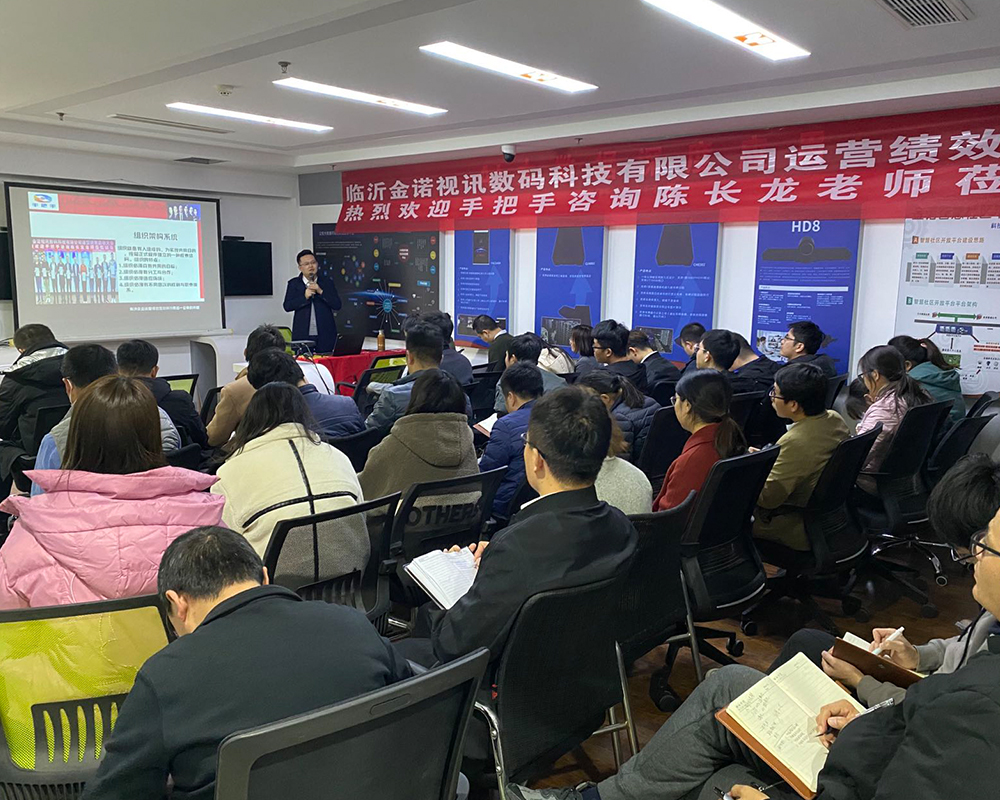

股權(quán)知識
股權(quán)激勵Equity incentive
山東股權(quán)激勵落地前需要做哪些準(zhǔn)備?
發(fā)布時間:2025-07-09 來源:http://zyvd.cn/
山東企業(yè)在推進(jìn)股權(quán)激勵落地前,,需從戰(zhàn)略定位、內(nèi)部梳理,、方案設(shè)計等多維度做好準(zhǔn)備,,確保激勵計劃與企業(yè)發(fā)展階段相適配,兼顧公平與效率,,為長期穩(wěn)定發(fā)展奠定基礎(chǔ),。
Before promoting the implementation of equity incentives, Shandong enterprises need to prepare from multiple dimensions such as strategic positioning, internal organization, and program design to ensure that incentive plans are compatible with the development stage of the enterprise, balancing fairness and efficiency, and laying the foundation for long-term stable development.
明確股權(quán)激勵的核心目標(biāo)是首要前提。企業(yè)需結(jié)合自身所處行業(yè)特點,、發(fā)展階段(如初創(chuàng)期,、成長期、成熟期)及戰(zhàn)略規(guī)劃,,確定激勵的側(cè)重點:是吸引核心人才,、留住關(guān)鍵團(tuán)隊,還是激發(fā)員工動力、推動業(yè)績增長,。例如,,科技型企業(yè)可能更側(cè)重通過股權(quán)激勵留住研發(fā)骨干,傳統(tǒng)制造企業(yè)或許更關(guān)注以激勵推動生產(chǎn)效率提升,。目標(biāo)清晰后,,才能避免激勵計劃流于形式,確保每一項設(shè)計都服務(wù)于企業(yè)長遠(yuǎn)發(fā)展,。
Clarifying the core objectives of equity incentives is the primary prerequisite. Enterprises need to determine the focus of incentives based on their industry characteristics, development stages (such as initial stage, growth stage, mature stage), and strategic planning: whether to attract core talents, retain key teams, or stimulate employee motivation and drive performance growth. For example, technology-based enterprises may focus more on retaining R&D backbone through equity incentives, while traditional manufacturing enterprises may focus more on incentivizing production efficiency improvement. Only with clear goals can we avoid incentive plans becoming mere formalities and ensure that every design serves the long-term development of the enterprise.
全面梳理企業(yè)內(nèi)部狀況是基礎(chǔ)工作,。首先需厘清股權(quán)結(jié)構(gòu),明確現(xiàn)有股東持股比例,、股權(quán)性質(zhì)(如普通股,、優(yōu)先股)及潛在的股權(quán)糾紛風(fēng)險,確保股權(quán)激勵不會影響企業(yè)控制權(quán)穩(wěn)定,。其次,,對核心崗位和人員進(jìn)行分層分類,識別出對企業(yè)價值創(chuàng)造起關(guān)鍵作用的群體(如高管,、技術(shù)骨干,、銷售精英),避免 “全員激勵” 導(dǎo)致資源分散,,真正讓激勵向核心貢獻(xiàn)者傾斜,。同時,梳理企業(yè)財務(wù)狀況,,評估可用于激勵的股權(quán)總量及激勵成本,,確保計劃在企業(yè)財務(wù)承受范圍內(nèi)。
Comprehensively sorting out the internal situation of the enterprise is a fundamental task. Firstly, it is necessary to clarify the equity structure, including the existing shareholder shareholding ratio, equity nature (such as common shares and preferred shares), and potential equity dispute risks, to ensure that equity incentives do not affect the stability of corporate control. Secondly, classify the core positions and personnel into different levels, identify the groups that play a key role in creating enterprise value (such as executives, technical backbones, and sales elites), avoid "all staff incentives" leading to resource dispersion, and truly tilt incentives towards core contributors. At the same time, sort out the financial situation of the enterprise, evaluate the total amount of equity and incentive costs that can be used for incentives, and ensure that the plan is within the financial capacity of the enterprise.

建立健全的公司治理結(jié)構(gòu)是重要保障,。股權(quán)激勵涉及股權(quán)變動,、利益分配等敏感問題,需有規(guī)范的決策流程和監(jiān)督機(jī)制,。企業(yè)應(yīng)完善公司章程,,明確股權(quán)激勵的決策權(quán)限(如股東會、董事會的審批范圍),,確保計劃制定過程合法合規(guī),。此外,需搭建清晰的崗位職責(zé)體系和績效考核制度,,讓激勵與業(yè)績緊密掛鉤 —— 若無法客觀衡量員工貢獻(xiàn),,激勵可能淪為 “福利”,反而削弱團(tuán)隊積極性,。例如,,設(shè)定可量化的業(yè)績指標(biāo)(如營收增長率、利潤率、項目完成率),,作為行權(quán)條件和激勵力度的依據(jù),。
Establishing a sound corporate governance structure is an important guarantee. Equity incentives involve sensitive issues such as equity changes and benefit distribution, and require standardized decision-making processes and supervision mechanisms. Enterprises should improve their articles of association, clarify the decision-making authority for equity incentives (such as the approval scope of the shareholders' meeting and the board of directors), and ensure that the planning process is legal and compliant. In addition, it is necessary to establish a clear job responsibility system and performance evaluation system, so that incentives are closely linked to performance - if employee contributions cannot be objectively measured, incentives may become "benefits" and weaken team motivation. For example, setting quantifiable performance indicators (such as revenue growth rate, profit margin, project completion rate) as the basis for exercise conditions and incentive intensity.
設(shè)計科學(xué)合理的激勵方案是核心環(huán)節(jié)。需結(jié)合山東地域特點和行業(yè)慣例,,選擇適合的激勵模式,,如限制性股票、股票期權(quán),、虛擬股權(quán)等:限制性股票適合對核心團(tuán)隊的長期綁定,,股票期權(quán)更能激發(fā)員工對企業(yè)成長的期待,虛擬股權(quán)則可避免股權(quán)稀釋,,適合暫不打算上市的企業(yè),。同時,明確激勵對象的范圍,、股權(quán)數(shù)量分配原則(如按崗位價值,、貢獻(xiàn)大小分配)、行權(quán)條件(如服務(wù)年限,、業(yè)績目標(biāo)),、退出機(jī)制(如員工離職、退休,、違紀(jì)時的股權(quán)處理方式),尤其要細(xì)化退出條款,,避免后續(xù)糾紛,。
Designing a scientifically reasonable incentive plan is the core element. It is necessary to choose a suitable incentive model based on the regional characteristics and industry practices of Shandong, such as restricted stocks, stock options, virtual equity, etc. Restricted stocks are suitable for long-term binding to the core team, stock options can better stimulate employees' expectations for corporate growth, and virtual equity can avoid equity dilution and is suitable for companies that do not plan to go public temporarily. At the same time, it is necessary to clarify the scope of incentive targets, the principle of equity distribution (such as based on job value and contribution size), exercise conditions (such as service years and performance goals), and exit mechanisms (such as the handling of equity in case of employee resignation, retirement, or disciplinary violations), especially to refine the exit clauses to avoid subsequent disputes.
本文由山東股權(quán)激勵落地友情奉獻(xiàn).更多有關(guān)的知識請點擊:http://zyvd.cn真誠的態(tài)度.為您提供為全面的服務(wù).更多有關(guān)的知識我們將會陸續(xù)向大家奉獻(xiàn).敬請期待.
This article is about Shandong Equity Incentive Friendship Dedication For more information, please click: http://zyvd.cn Sincere attitude To provide you with comprehensive services We will gradually contribute more relevant knowledge to everyone Coming soon.
本站聲明
本網(wǎng)站為非營利性網(wǎng)站,旨在宣揚(yáng)股權(quán)知識,,交流職業(yè)學(xué)習(xí)心得,。網(wǎng)站內(nèi)部分文章來自其它網(wǎng)站,只做交流學(xué)習(xí)之用,。相應(yīng)的權(quán)力均屬于原權(quán) 力人,,如權(quán)利人認(rèn)為不妥,請來電來函說明,,本網(wǎng)站隨既停止或使用,,謝謝合作! 13698613138
13698613138
微信公眾號

掃碼獲知更多知識

抖音二維碼
山東股章企業(yè)管理顧問有限公司 備案號:魯ICP備19050574號-2 網(wǎng)站建設(shè)·推廣運(yùn)營 網(wǎng)站地圖 XML TXT

截屏,,微信識別二維碼